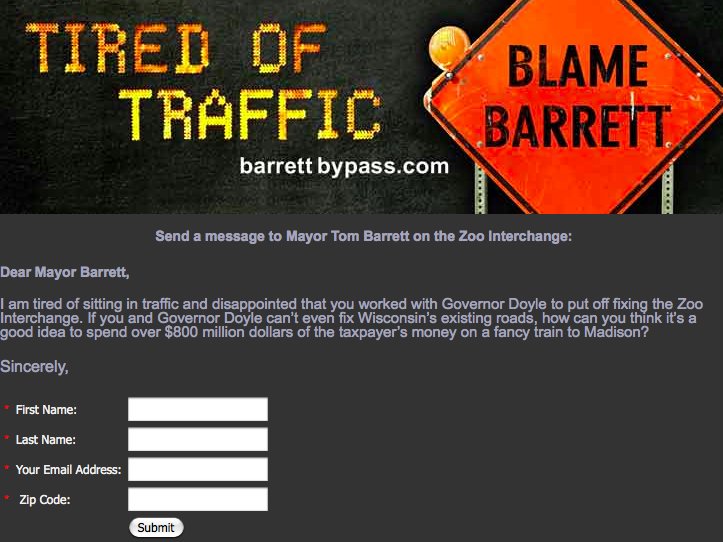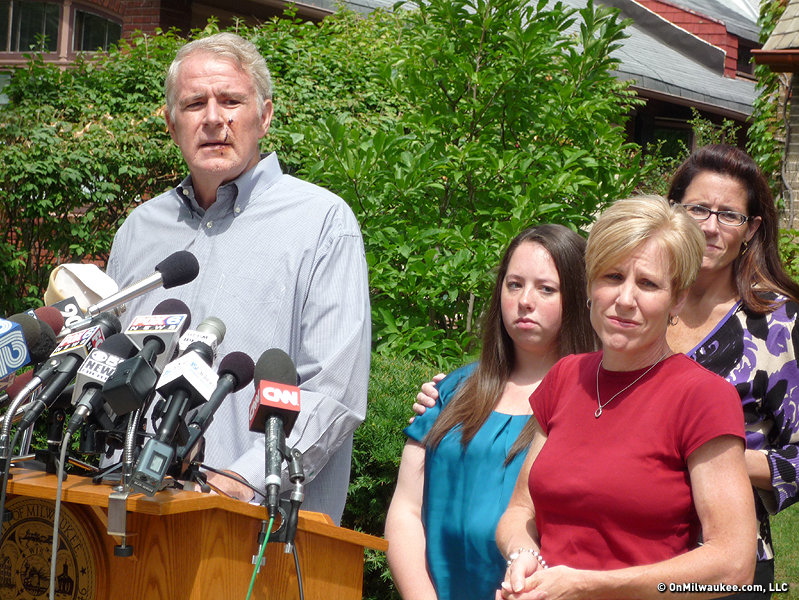Milwaukee Mayor Tom Barrett expressed his disappointment Monday afternoon over the federal government's decision to deny Wisconsin's request for $150 million to upgrade the Amtrak Hiawatha line between Milwaukee and Chicago.
The money would have been used for new equipment, including cars and locomotives, and a new maintenance base for the line, which contributed to Amrtak's record ridership of 28.7 million in the fiscal year that ended last October.
Barrett said the decision, announced Monday by Transportation Secretary Ray LaHood, was a direct result of Gov. Scott Walker's refusal of $810 million in federal stimulus money to construct a Milwaukee-to-Madison leg, part of a larger high-speed rail line connecting Chicago and the Twin Cities.
"This is another chapter in the fiasco that was created when Gov.Walker refused to have the high-speed rail dollars spent here in Wisconsin," Barrett said. "Now, the fact that we've lost the $810 million and the second chapter where we weren't able to garner the money for the Milwaukee to Chicago run underscores why it was so important for us in the first place to be part of this national effort to connect people and communities."
The mayor plans to contact LaHood to see if there is any way to move ahead with plans to upgrade the train shed at the Intermodal Station as well as the line and equipment but is awaiting a "Plan B" from the governor.
"This leg was clearly the strongest," Barrett said. "There are many communities competing for these dollars. The federal government is obviously interested in putting these dollars into these communities and these regions that show the most support for connecting many communities here in the Upper Midwest.
"One of the things I'm most concerned about is people in Iowa now talking about having a link between Chicago and the Twin Cities that would simply bypass Wisconsin. I think the worst thing that could happen is having a high-speed rail network in the Midwest and Wisconsin is singled out as the one state that's not a part of it."
The Milwaukee-Madison line was a hot-button issue last year when Barrett lost his gubernatorial bid to Walker. The mayor supported the line while Walker was steadfast in his opposition, though he did remain in favor of Hiawatha upgrades.
Barrett, though, doesn't believe politics played a role in LaHood's decision.
"I don't think that had anything to do with it," Barrett said. "Clearly, the governor's actions in the first round had a negative impact. He insisted that he did not want to have dollars spent here in Wisconsin on high-speed rail. Then, you've got the second chapter where he's willing to have money spent on the Chicago to Milwaukee run. I'm pleased that he made that announcement.
"Because of the governor's previous actions, I think that hurt us."
Walker spokesperson Cullen Werwie said the governor, too, was disappointed by LaHood's announcement and pointed out that the Hiawatha is Amtrak's busiest Midwest segment, attracting more than 800,000 riders each year.
"We are disappointed that Wisconsin's proven Amtrak Hiawatha passenger rail service wasn't included in the latest announcement of federal rail funding," Werwie said in an e-mail. "This rail service plays a vital role in our transportation system and the application for funding would have bolstered the existing system, the Midwest's infrastructure network, and our economy as a whole.
"Moving forward the administration will continue to look for cost-effective ways to improve Wisconsin's existing infrastructure network, expand where feasible and maintain what we already have."
LaHood announced that 15 states and Amtrak would receive a combined $2.02 billion for 22 high-speed, intercity rail projects. Of that total, $672 million went to projects in the Midwest, including $196.5 million to provide service between Chicago and Detroit and $186.3 million to upgrade the line between Chicago and St. Louis.
Wisconsin and Kansas were the only states to have their applications denied, which Barrett said is a reflection of those states' lack of commitment to high-speed rail travel.
"When the federal government is looking at states most committed to high-speed rail, clearly, they're not looking at Wisconsin because under this leadership, there is no commitment there," Barrett said. "Again, I want to hear what Gov. Walker's Plan B is."







